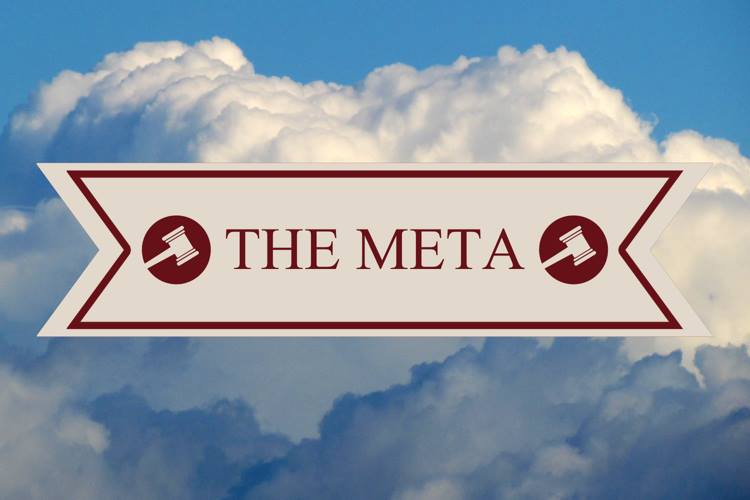When Theory is Drop the Argument, But There’s No Argument to Drop

by Salim Damerdji and Bob Overing
One of the primary ways to play defense against a strong theory debater is “drop the argument,” so long as the round is still winnable without the argument to be dropped. Along with reasonability, reading drop the argument creates a necessary-but-insufficient burden for the theory initiator if she wants to win on the shell. Thus, if there’s time, it’s almost always better to read drop the argument against theory.
Theory debaters realized this fact, so they came up with a clever solution: read theory arguments such that there is no possible way to drop the argument. In policy, a similar phenomenon occurs with conditionality theory, (which not coincidentally) is the most voted on theory argument in that activity. Drop the argument is a nonsensical impact to condo theory because the abuse story is that dropping the argument is precisely what’s unfair. Thus, an alternate remedy is necessary.
Talented LD theory debaters have recently made a similar argument in other contexts. They say that for theory interpretations where no particular argument is criticized, there is nothing to be dropped, so the only recourse is drop the debater. For example:
“My A-SPEC shell must be drop the debater because even if drop the argument is true, there is nothing to be dropped since I’m criticizing something the aff didn’t do, rather than something they did do.”
Debaters have applied this reasoning to a bunch of different shells: all variants of spec (agent, enforcement, funding, normative ethic), conditionality, must read framework / ROB, must read a plan or advocacy text, must weigh between layers, etc. The argument applies better in some contexts than others, but basic formula is simple: if the violation is an omission rather than commission, theory initiators claim there is nothing to drop, so drop the debater is the necessary recourse.
However, this reasoning is flawed. The fact that dropping the argument is impossible does not imply that drop the debater is the only option. It’s a false dichotomy. There is a third option: do nothing. If there are decisive disadvantages to drop the debater, but drop the argument is impossible, there’s still a choice: drop the debater despite the decisive disadvantages to doing so or drop nothing.
It seems strange that a theory shell could be “won” on the standards-level, i.e. the interpretation is better for debate than the counter-interpretation, but it could still have no impact on the round. However, if the strength of the theory argument itself is much weaker than the strength of the reasons against dropping the debater, doing nothing is simply the best option.
Judges should understand and adopt this view, and more debaters should argue for it as a way to mitigate the harms of frivolous theory arguments. For example:
“It may be impossible to drop the argument if the neg wins her A-SPEC shell; however, the ground loss identified is SO small that the arguments against drop the debater – that it encourages frivolous theory, over-punishes, and detracts from topic debate – should outweigh. Thus, it’s better to drop nothing than to drop the debater on frivolous theory.”
This reasoning could apply to a lot of different frivolous theory arguments since many of these shells indicting omissions are used as mere time sucks and do not identify any significant abuse (think “must specify enforcement mechanism in the aff”). Our suggestion is a new way for debaters to beat bad theory shells without having to create strong offense in favor of a counter-interpretation. This is really helpful because a lot of these shells are not obviously wrong (yes, it might be slightly better to specify enforcement mechanisms), but they shouldn’t rise to the level of voting issues.
Please comment below or on our Facebook page if you have any thoughts about our argument or any other innovative ways to beat back frivolous theory shells.
End Notes
[1] Special thanks to students and faculty at Premier Debate Los Angeles for inspiring this idea and discussing it with us, especially Oliver Sussman.
Salim Damerdji | Curriculum Director
Salim is Director of Philosophy Curriculum at Premier 2016. At the 2014 TOC, he was the 11th speaker and 11th seed. His students at Mission San Jose and MVLA have earned 17 bids in two years, won two quarters bid tournaments, and reached quarters of TOC twice. Salim studies Philosophy and Statistical Science at UCSB.
Bob Overing | Co-Director
Bob is a co-director of Premier, coach for Loyola in Los Angeles, and debater for the USC Trojan Debate Squad. As a senior in high school, he was ranked #1, earned 11 bids and took 2nd at TOC. In college, he cleared at CEDA and qualified to the NDT. His students have earned 80 career bids, reached TOC finals, and won many championships.





2 Comments
?????
Literally Same